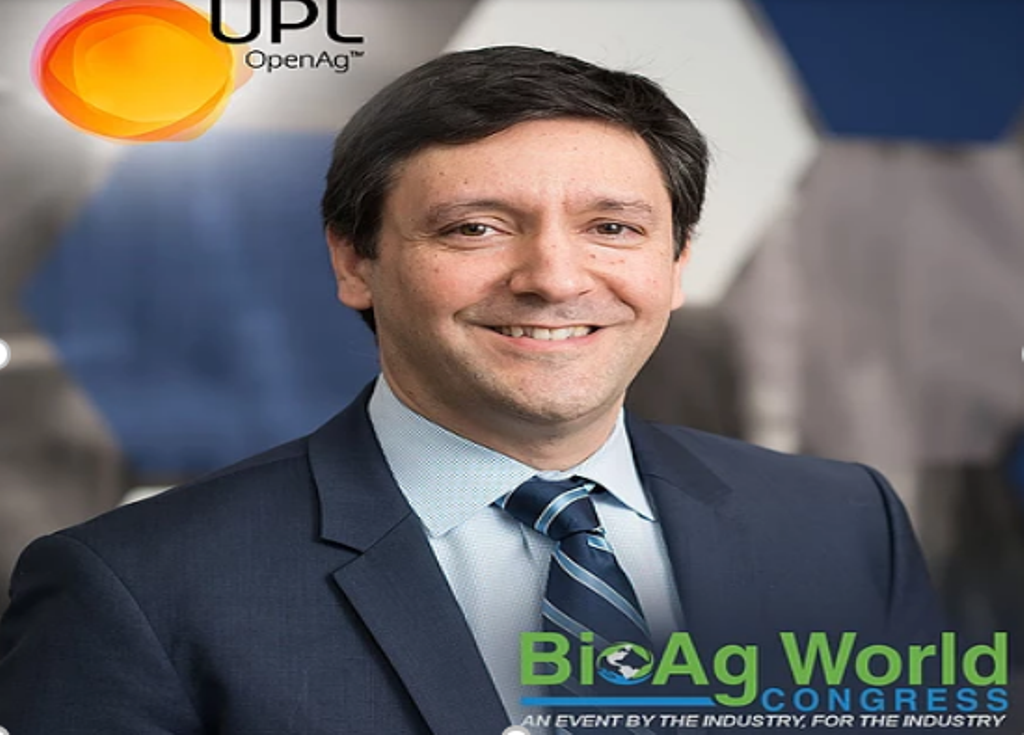
UPL has revolutionized the industry with its innovative products. It has an exceptional R&D facility and is committed to sustainability. Their passion to take innovations from lab to land and stewardship and safety have made them stand out. We share below our interaction with UPL – COO, Diego Casanello on BioAg Industry, its growth, scope, and challenges.
Q1. Increasing concern for the environment and consumer awareness for quality produce has paved the way for bio-agriculture. How comfortable are agri-input companies with the thought of bio-agriculture replacing conventional agriculture?
UPL sees this trend as an opportunity. Our company is today the leader in natural crop protection products, and we expect this business to grow. At the same time, and for the foreseeable future, we know that bio-solutions alone will not be able to provide all the answers to the challenges that growers face to produce the amount of food that the world population demands. We are intensively investing in R&D to expand the toolbox of bio-based products. In the meantime, we look for a sustainable balance between all available crop management solutions, including natural crop protection. Our Pronutiva program, for example, combines both BioSolutions and conventional crop protection during the life cycle of each crop.
Q2. UPL is a leader in the agri-input industry, delivering crop protection solutions for decades. What measures should governments and corporations undertake to ensure the quality of bioag inputs in the market and curb spurious pesticides?
Quality agri-inputs are a vital part of food production & food security which cannot be overlooked by any stakeholder, including governments who have responsibilities for their own people. Corporations are also responsible to communities across the world where they operate. We welcome the efforts by many governments to establish guidelines and standards for bio-based plant protection. The many serious companies in this space want to make sure that we grow the bioag sector in a responsible manner and that we have clear and consistent rules that allow to plan for long-term R&D investments.
Q3. With UPL’s strong R&D background, what do you feel could be the next path-breaking innovation in bio-Agriculture?
We believe that the future of more sustainable agriculture lies in the combination of three promising technologies. We are talking about artificial intelligence, robotics, and genomics. These new emerging technologies will create a big shift in almost all industries, including our own. Farmers will be able to use resources like water, soil, and inputs, multiple times more efficiently. At the same time, our plant protection products will become more effective and target specific. These technologies will make regenerative agriculture possible, which in turn will help us improve the carbon footprint of the entire industry.
We recently inaugurated our OpenAgTM R&D Center in the Research Triangle Park in Raleigh, North Carolina, USA. OpenAg, among other things, stands for open collaboration and open innovation. This global R&D hub has great state-of-the-art laboratories, greenhouses, and collaboration spaces. Here is where all these disruptive technologies are tested and combined to produce solutions that can solve big problems. We’re partnering with innovative entrepreneurs to rapidly onboard and evaluate new technologies. It takes much more than one company to transform a food system. We need to work and think as a network.
Q4. UPL clearly sees the bioag industry as one of the major growth areas hence the acquisition of Arysta. What do you see as the prime market for bioag inputs and what customized solutions do you intend to bring in?
The merger of Arysta LifeScience and UPL provided a terrific opportunity to combine two strong companies with complementary portfolios and become a leader in the space. Now we have bio-ag products addressing the physiological needs for every stage of the plant lifecycle. We specialize in soil and seed health, plant stress, plant nutrition, and biocontrol. When researching for the next generation of input products, we follow closely consumer trends and farmer needs. Helping farmers eliminate chemical residues in fresh produce is a key focus area. Making plants more resilient to climate change is another. And, of course, producing more with less remains a huge objective.
Today we are making giant steps in our understanding of how genes in plants, insects, or pathogens work. This can help us develop products that can naturally induce the plant to behave in a certain way or eliminate a fungus in a very targeted way.
Q5. How do you see BioAg World Congress as the right platform to gain required exposure and opportunities in Global BioAg Industry?
The BioAg World Congress brings the industry together, creating a global network to raise awareness and focus on biosolutions and sustainable agriculture, to build partnerships, and share our visions, knowledge, and experience. Through UPL’s OpenAg purpose, we are opening doors for partners to collaborate with us to create a more sustainable future. We look forward to meeting entrepreneurs with great and disruptive ideas.









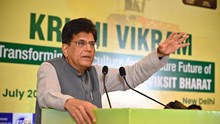
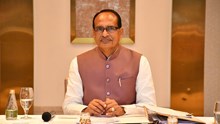
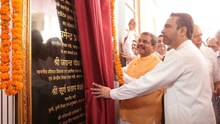
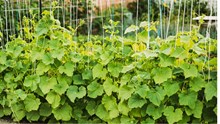
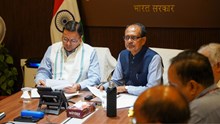
Share your comments